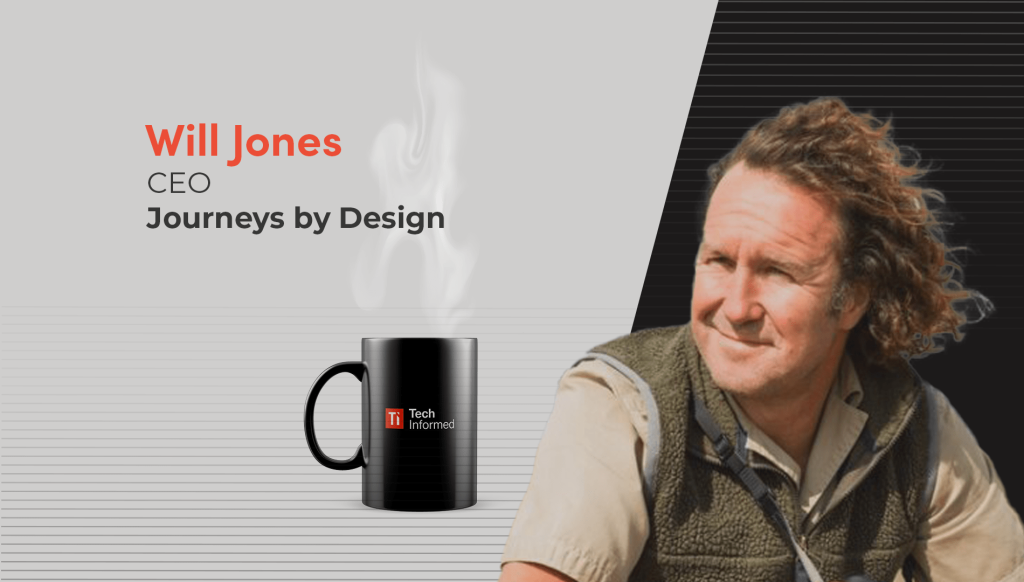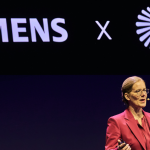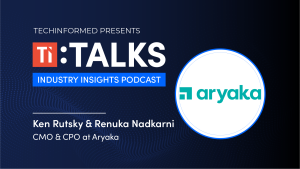

Will Jones, CEO, Journeys by Design
Born from a deep connection to Africa and its wildlife, Journeys by Design was founded in 1999 by trained environmental scientist Will Jones. After moving through several African countries as a child, Jones returned to…
Born from a deep connection to Africa and its wildlife, Journeys by Design was founded in 1999 by trained environmental scientist Will Jones.
After moving through several African countries as a child, Jones returned to the continent to work as a tour guide, but his passion for conservation and belief in the power of tourism, led him to launch a travel company with a conscience.
The company has since grown from Will working alone to a multi-national team across three countries – and tech, including a partnership with QuickBooks, has played a key role in that growth, Jones explains over a coffee.
Tell us how you came to launch Journeys by Design…
I grew up across six African countries — Nigeria, Ethiopia, Lesotho, Kenya, Sudan, and Uganda — and that upbringing sparked a deep passion for wilderness and wildlife. After boarding school in the UK, I trained as an environmental scientist before returning to Ethiopia to volunteer in its national parks.
Almost by accident, I found myself in tourism. I helped establish the country’s first community-managed nature reserve and tented camp in southern Ethiopia, designed to generate revenue for local conservation and development programs. That experience set me on the path to becoming a frontier travel specialist, with much of my early work focused in the Horn of Africa.
What attracted you into the tourism industry?
I was always interested in adventure travel and understood that tourism can be a tool for generating revenue that can be redistributed to support the asset on which the industry depends – the local environment, wildlife and people.
From a more selfish perspective, it has served as a vehicle for me personally and for my team to explore the world in a way we never could on our own.
How has the company grown?
We have 15 full-time employees spread across the UK, Botswana and Kenya, and then an additional 30 employees in Ethiopia in another related company. Overall, we are operating out of around 25 countries, all in Africa.
We provide travel for rarefied clients – the average booking value is around $120,000 – although this does fluctuate. But it is at the high end of travel and we are often going in to areas visited less by most tourists.
How do you balance conservation with business sustainability?
Balancing conservation with the commercial side is never simple, but it’s central to what we do. We commit at least 1% of turnover — often closer to 2% — to conservation and development projects. That supports our not-for-profit arm and ensures donations go directly to local charities and small businesses in critical conservation areas. In practice, it means about 20% of our profits go back into philanthropy.
This is where technology makes a real difference. Tools like QuickBooks give us the clarity to manage thin margins while still sustaining those commitments.
Given you span multiple countries, what role has tech played in helping you scale the business?
As we’ve grown across multiple countries, we’ve often hit invisible glass ceilings — and technology has been the tool that’s helped us break through them. One of the biggest challenges was financial visibility and building the right architecture to invest with confidence at scale.
On the marketing side, SEO has been transformative. We’d always been very hands-on and people-driven — hosting press on private guided trips, for example — but once we started taking SEO seriously, we could amplify that content and saw a significant uptick in both interest and revenue.
Tell us about your relationship with QuickBooks and the role it has played in your growth?
We first started using QuickBooks back in 2004, when it was just me, a small team, and a bookkeeper working largely by hand. By 2014, we weren’t just running one business anymore — we were managing five, scaling quickly, and needing far greater visibility over our finances. That was the catalyst for deepening our use of QuickBooks and really embedding it into our finance team.
QuickBooks is an accounting and financial management platform, and it gave us the tools to track everything in real time — from expenses and cash flow to forecasting and reporting. With its help, we built out the financial architecture we needed. The live budget updates were particularly valuable, giving us a clear view of both risks and opportunities — from managing cash flow to knowing where and when we could confidently invest.
How do you decide which digital tools to adopt without losing sight of your core mission?
We’re cautious with new tech. The advantages are clear, but for us it’s about keeping the human element front and centre — more of a co-pilot than a replacement. Travel is an experiential, relationship-driven industry. When clients talk about why they travel, it’s rarely about logistics; it’s about the connections they build with family and community. That’s not something software can measure.
We do use tools like an itinerary builder, a CRM, and QuickBooks, but we’re not overly tech-stacked. Right now, we’re focused on defining who we are and where we’re going. Technology will play a bigger role, but only in ways that align with our ethics and core principles as we enter the next phase of growth.
What piece of technology could you not live without?
I use the Garmin inReach to keep track of some of our adventures — for example, I did a 700-kilometer walk, and the only way I could track it was with this little device pinging away in my backpack.
The Garmin inReach is a compact satellite communicator and GPS tracker. Unlike a regular phone, it doesn’t rely on mobile coverage — instead, it uses the Iridium satellite network, which means you can send messages, share your location, and call for help even when you’re far off the grid.
I really like it as a bit of tech. Since our strapline is miles from nowhere, it fits perfectly — we often head off-grid and beyond normal communication, so having reliable satellite communication gives me both safety and peace of mind.
How do you take your coffee?
If it’s on the stove, an espresso but my usual cafe order is a flat white. I like my coffee short and strong, with a high caffeine content.
Still thirsty? Dive into tech and travel insights from Expedia’s data and AI boss Shiyi Pickrell







